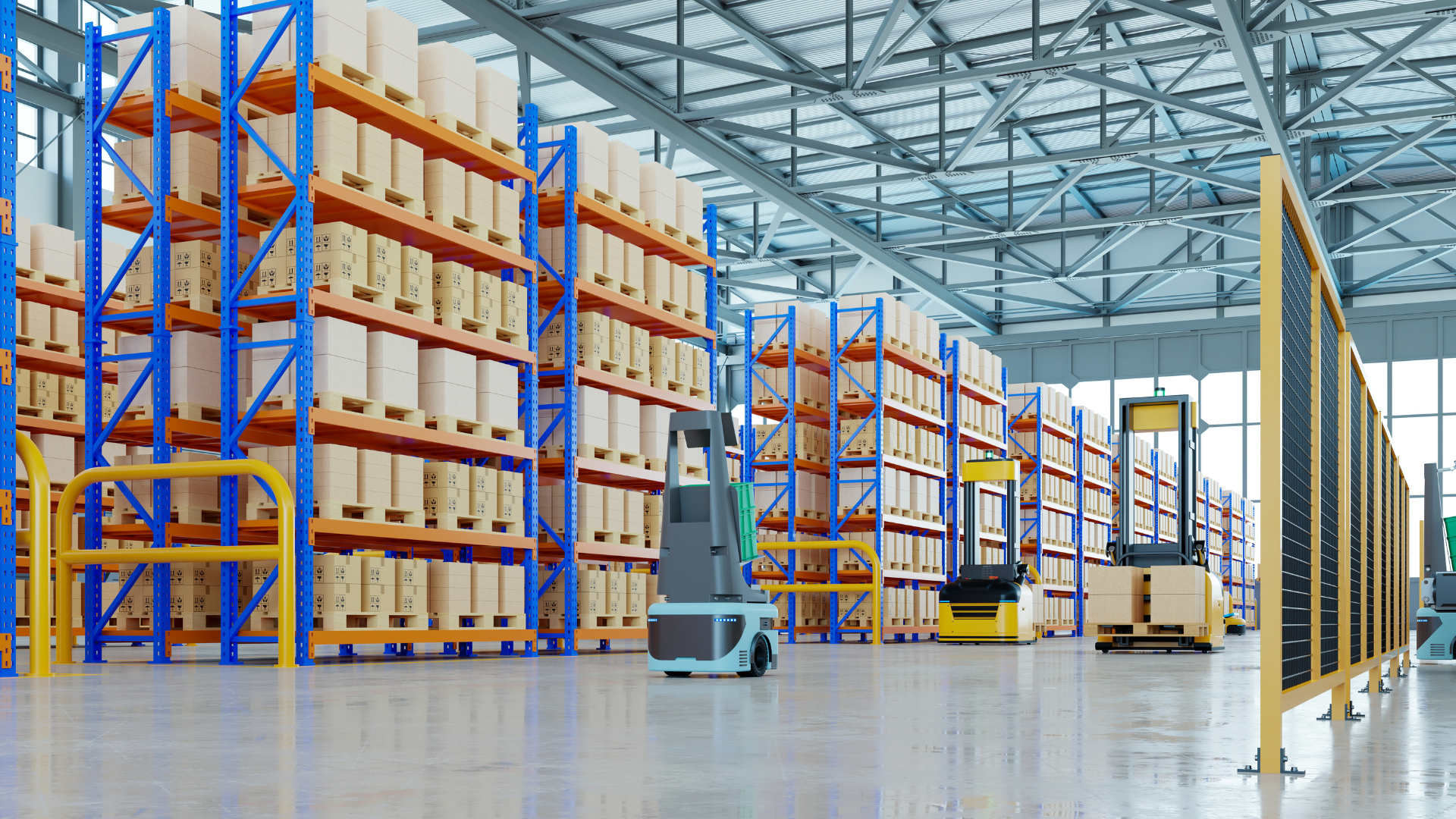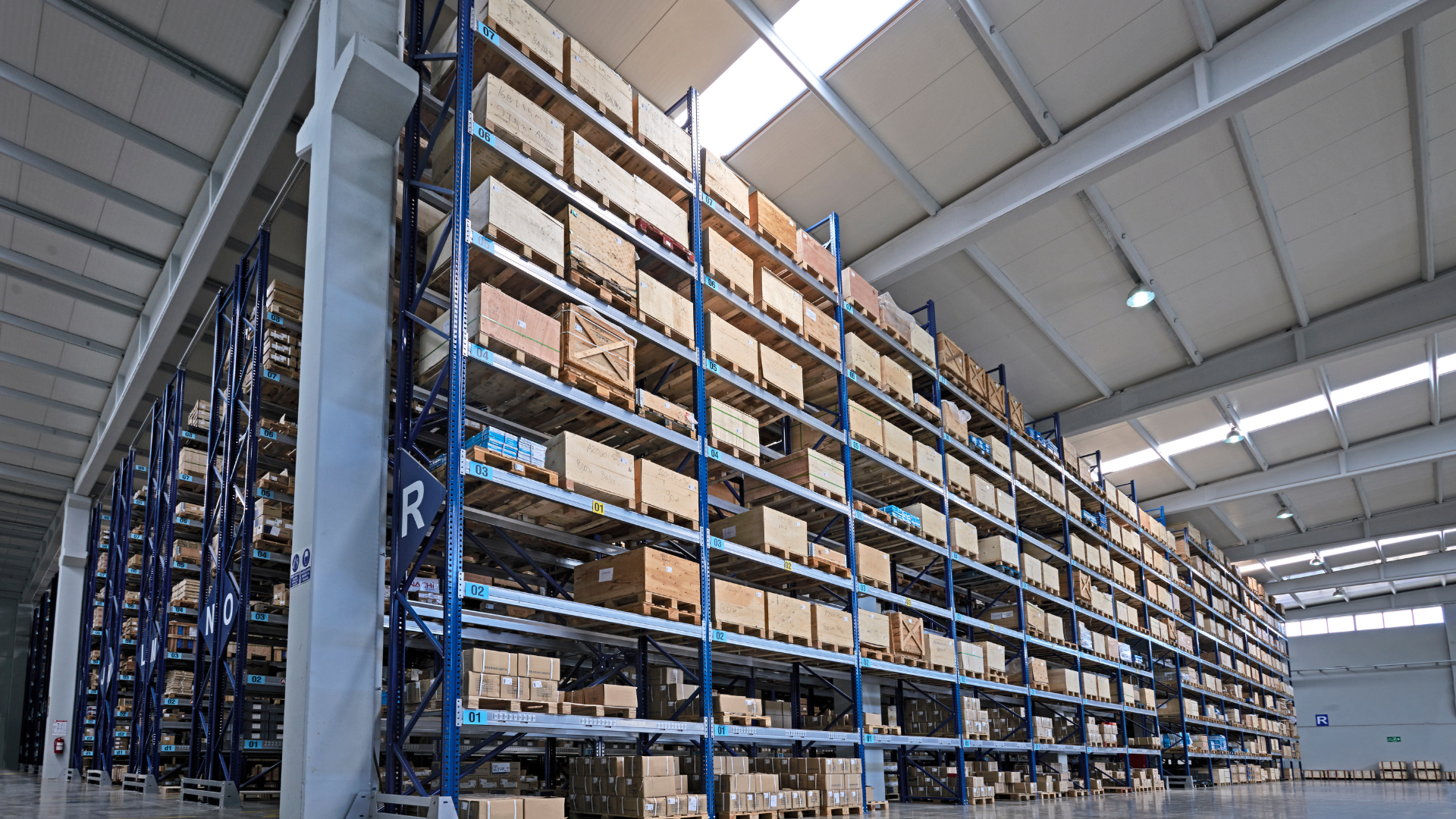The magnitude of global freight transportation is truly staggering, with goods traversing the world via ships, trucks, planes, and trains. However, this impressive logistical feat comes at a substantial environmental cost. In fact, freight transportation alone is responsible for a significant 8% of global greenhouse gas emissions, and when we include the emissions from warehouses and ports, that number rises to a concerning 11%. What's even more alarming is the trajectory we're on; without substantial changes aimed at achieving sustainability, the logistics sector is poised to become the highest carbon-emitting industry by the year 2050 (Climate.mit.edu). This underscores the urgent need for transformative measures in the logistics industry to address its environmental impact and move toward a more sustainable future.
Sustainability in contract logistics refers to the practice of conducting logistics operations in a manner that minimizes negative environmental, social, and economic impacts while ensuring long-term viability. Sustainable contract logistics offer a wide array of benefits to customers, aligning with their sustainability goals while enhancing supply chain operations. Customers enjoy cost savings through reduced operational expenses, better resource management, and enhanced efficiency. By partnering with sustainable logistics providers, clients can bolster their own environmental responsibility and brand reputation, appealing to eco-conscious consumers. Environment-friendly logistic solutions are the need of the present time and companies must take actions to reduce their carbon footprint and increase transparency, and for that, they need a well-rounded approach. Here are several aspects to consider regarding sustainability in contract logistics.
EFFICIENT WAREHOUSING FOR ENHANCED SUSTAINABILITY
Sustainable warehousing practices involve energy-efficient lighting, heating, and cooling systems, as well as better inventory management to reduce waste and unnecessary storage space. However, a sustainable and efficient warehouse operation encompasses several key elements.

Efficient warehousing plays a vital role in fostering sustainable contract logistics, as it reduces energy usage, minimizes waste, optimizes transportation, and encourages environmentally responsible practices.
Efficient inventory management is a fundamental pillar of efficient warehousing, playing a pivotal role in minimizing waste and maintaining optimal stock levels. Leveraging sophisticated data analytics and forecasting tools enables precise demand prediction, effectively curbing the risks of both overstocking and understocking. Furthermore, the adoption of just-in-time inventory practices streamlines operations, reducing excess inventory and fostering a more efficient and lean supply chain approach.
Efficient space utilization serves as another critical aspect in the realm of sustainable logistics. Warehouse management systems prioritize the implementation of vertical storage systems, effectively maximizing the use of available cubic storage space while minimizing the overall physical footprint. Additionally, the integration of cross-docking practices further enhances efficiency by reducing the need for prolonged storage and facilitating a smoother and more streamlined flow of goods within the facility.
In the realm of transportation coordination, strategic placement of logistics facilities near transportation hubs is key to reducing unnecessary travel distances and subsequent emissions. The utilization of consolidation centers further optimizes transportation resources, ensuring that delivery and shipment processes are conducted in the most efficient and resource-conserving manner. Alongside these efforts, the integration of advanced technologies, such as automation systems, IoT, and RFID, significantly contributes to enhancing operational efficiency and reducing labour requirements. Real-time tracking and monitoring of inventory and assets facilitate improved transparency and streamlined operations.
Additionally, collaborative logistics strategies, including the sharing of warehouse space and the pooling of transportation and storage resources with partners, effectively minimize redundancy, enhance overall efficiency, and contribute to cost reduction. The culmination of these efforts underlines the critical role of data-driven decision-making in optimizing warehouse operations. By harnessing the power of data analytics, warehouses can ensure meticulous demand planning, efficient resource allocation, and effective routing decisions, guaranteeing that the facility operates at peak efficiency.
In summary, efficient warehousing contributes to sustainable contract logistics by minimizing energy consumption, reducing waste, optimizing transportation, and promoting environmentally responsible practices. This, in turn, can lead to cost savings, reduced environmental impact, and a more socially responsible supply chain. Companies that prioritize sustainable warehousing practices often benefit from improved brand reputation, reduced operating costs, and a competitive edge in today's environmentally conscious market.
SUSTAINABLE PACKAGING THROUGH DATA ANALYSIS & WASTE REDUCTION
Employing eco-friendly packaging materials and optimizing packaging design can minimize waste generation and transportation costs. This approach benefits not only the environment but also the overall efficiency of the supply chain. Sustainable packaging materials, such as biodegradable or recyclable options, can help minimize the environmental impact of packaging waste. Additionally, designing packaging that is more space-efficient and lightweight can reduce the volume and weight of packages, leading to lower transportation costs and a reduced carbon footprint. This sustainable packaging strategy is a win-win, benefiting both businesses and the planet.
Reducing the materials and resources needed to design and ship packaging is one of the proven ways businesses can generate savings while minimizing their environmental footprint. There are many tools on the market that identify potential CO2 eq and cost savings of a packaging solution using Life Cycle Analysis (LCA). As a result, the tool looks at the total lifecycle of packaging from the cradle to the grave, calculating the environmental impact for the production, transport, and end-of-life phases.
Implementing waste reduction and recycling programs in logistics facilities can reduce landfill waste and promote sustainability. The implementation of waste reduction and recycling programs in logistics facilities can have several positive impacts. First and foremost, these programs help reduce the amount of waste that ends up in landfills, which is crucial for minimizing the environmental impact of waste disposal. By separating and recycling materials like cardboard, plastics, and metals, logistics facilities can divert a significant portion of their waste away from landfills. Furthermore, these initiatives promote sustainability by conserving resources and reducing the energy required to produce new materials. Recycling programs not only minimize waste but also help lower the demand for raw materials, which is essential for a more sustainable future.

Recycling is a simple way for warehouses to go green, reduce waste, cut carbon emissions, boost sustainability, and lower operational costs.
In addition, waste reduction and recycling programs can also have financial benefits for logistics facilities. They can reduce waste disposal costs, especially if the facility can generate revenue by selling recyclable materials. Moreover, they can enhance a facility's reputation and appeal to eco-conscious customers and partners. Hence, implementing waste reduction and recycling programs in logistics facilities is a proactive and sustainable approach that contributes to environmental protection, resource conservation, cost savings, and improved corporate responsibility.
PROVEN RESULTS IN SUSTAINABLE OPERATIONS
In conclusion, sustainability in contract logistics is a multifaceted approach that addresses logistics operations' environmental, social, and economic aspects. It involves making conscious choices and implementing strategies to reduce negative impacts while ensuring the long-term success of logistics services. Sustainable practices benefit the environment and contribute to cost savings, improved customer relations, and enhanced brand reputation.
At Nefab we offer customized contract logistics services. Depending on the scale and complexity of your warehouse operations, the company lets you choose one of their proven warehouse management systems or uses the customers’ own systems. Nefab also leverages the technology-agnostic track and trace software to provide full visibility of your stock from 110 countries around the globe, saving you up to 95% costs of implementing new devices. Thanks to Nefab’s dedicated processes and individual approach, the team can help optimize your supply chains today and tomorrow under one roof.
We save resources in supply chains, for a better tomorrow.
Want to learn more?
GET IN TOUCH
Contact us to learn more about our smart and sustainable solutions.
LEARN MORE
GreenCalc
Nefab’s own certified calculator measures and quantifies financial and environmental savings in our solutions
Sustainable Solutions
Engineered packaging for sustainable supply chains
Sustainable Materials
Fiber-based packaging and raw materials